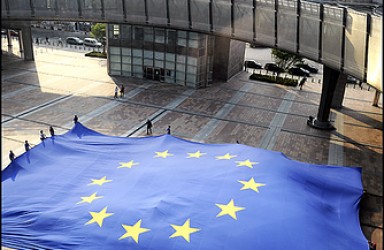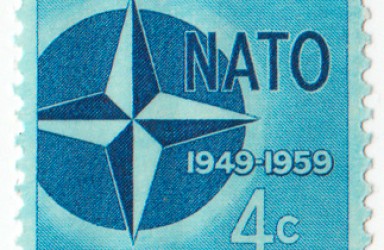What to do about Russia? The German view
The European states and the United States are increasingly having to consider what policy they should adopt towards Russia. Aggression abroad, suppression of freedom at home, intimidation of all opposition, murder, corruption and anti-Semitism have given rise to increasing alarm. Germany is struggling to reconcile the political, military and economic issues raised by its powerful neighbour to the east.
No More Unlawful War: The Case Against a US Attack on Iran
If America learns nothing else from the misadventure in Iraq, it should learn the high price of unlawful war. Yet, in an eerie atmosphere of déjà vue, we are hearing the drumbeat for war once again—this time against Iran. Only now we hear virtually nothing about the legal right to go to war. This is particularly odd since the law against attacking Iran is even clearer than the law against invading Iraq.
A Message from Moscow: Russian Power and the Conflict with Georgia
The ongoing conflict in the South Caucasus is far more than just another example of ethnic strife in the region, Russian aggression or the last stages of the unraveling of the Soviet Union. Wrapped up in this conflict are many of the major issues which have defined international politics in that part of the world for a decade and which will likely continue to define those politics for at least another decade.
The many dimensions of ethnic conflict: South Ossetia, Georgia, Russia, and the ‘precedent’ of Kosovo
The recent events in the South Caucasus once again highlight the pervasive and destructive forces inherent in ethnic nationalism. These should not be misunderstood as simply local phenomena for they have wider ramifications and are shaped by factors well beyond their locale.
Is Humanitarian Intervention Legal?
Where collective security avenues are blocked, could a State, or States acting jointly, lawfully intervene militarily in another State’s territory without the permission of the Government of that State to halt or prevent it from committing atrocities against its own people? What about intervention where the territorial Government is unable or unwilling to provide basic humanitarian assistance to its people in the face of natural or human-made disaster?
Ukraine’s Orange Revolution Five Years On
The story of how Yushchenko came to power with high domestic and international expectations that he largely failed to fulfill will be a fascinating area for future research.
Russia’s new weapon: the politics of pipelines
When it comes to energy, most of us consider Saudi Arabia to be the dominant supplier as well as the world’s most powerful petro-political force. Without taking anything away from Saudi Arabia, it happens that the above description is not entirely correct. Natural gas provides Russia with perhaps the most effective weapon it has ever had in dealing with the West.
South Ossetia and Georgia’s aggressive state-integrationism
Georgia has been guilty of aggressive state-integrationism, and, by its unquestioning support for Georgia’s ‘territorial integrity’, the international community fully shares the guilt for the bloodshed in Abkhazia and South Ossetia. Georgia has squandered any moral claim to control the respective territories.
Which Identity for the EU? Implications Of and For Turkey’s Accession
Turkey’s EU accession bid has encouraged political actors in the EU Member States and institutions to consider which kind of organisation the EU is and should be. Opinion is divided between those who support a ‘civic’ identity for the EU, and those who argue that the EU needs a thicker ‘cultural’ identity.
How NATO and Russia are Shaping the Future of European Security
The kind of conventional military brinkmanship going on at the common NATO-Russia border is not good news. A phenomenon not seen since the frostiest Cold War periods. If the last East-West confrontation offers a cautionary tale, it is that the situation urgently needs to be de-escalated, before worst-case scenarios become self-fulfilling prophecies.








